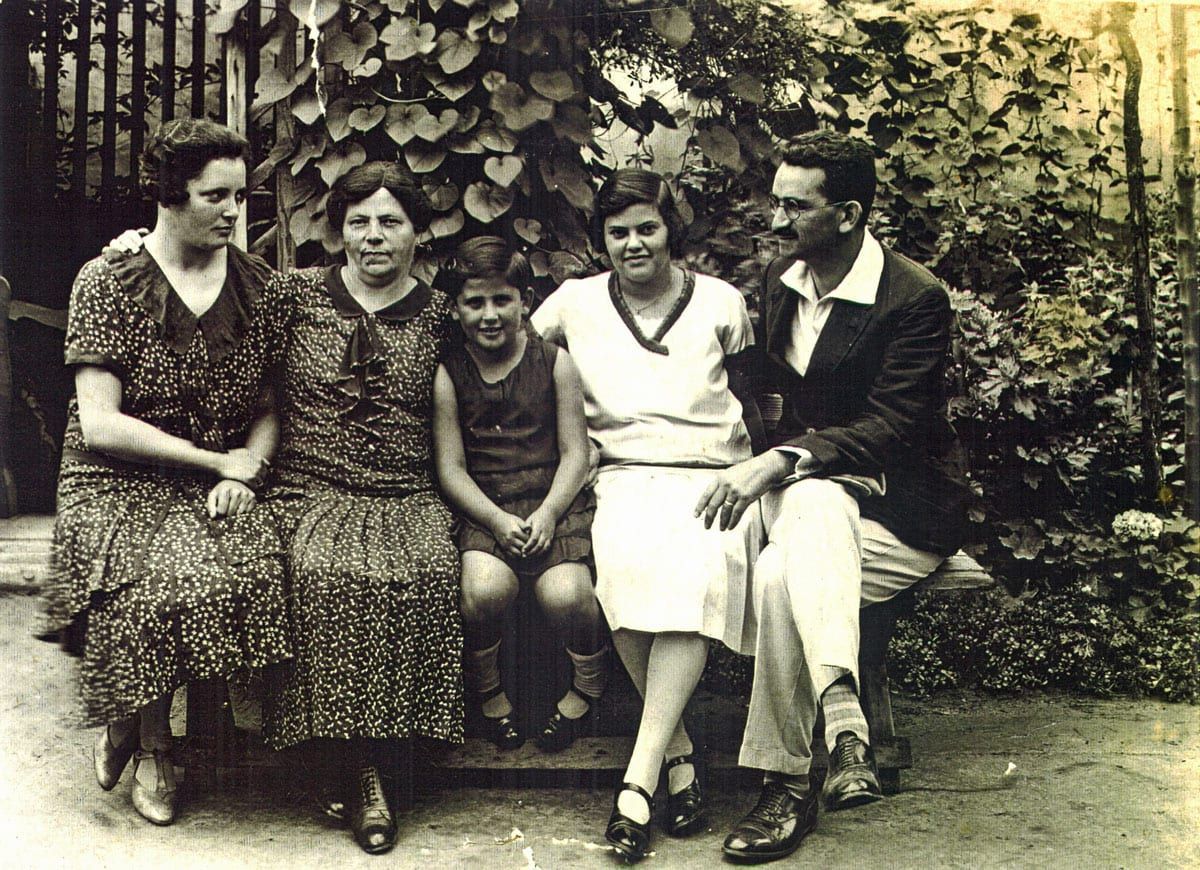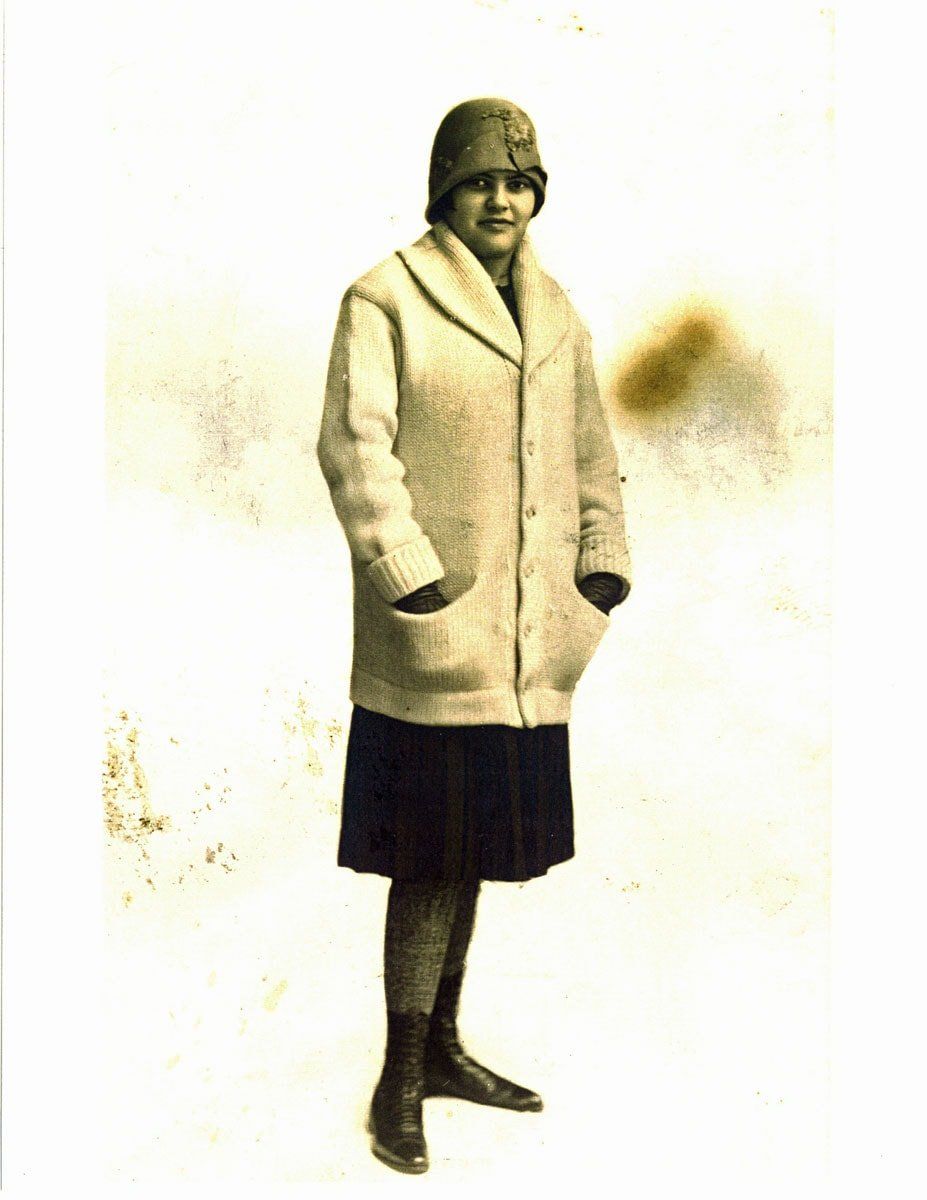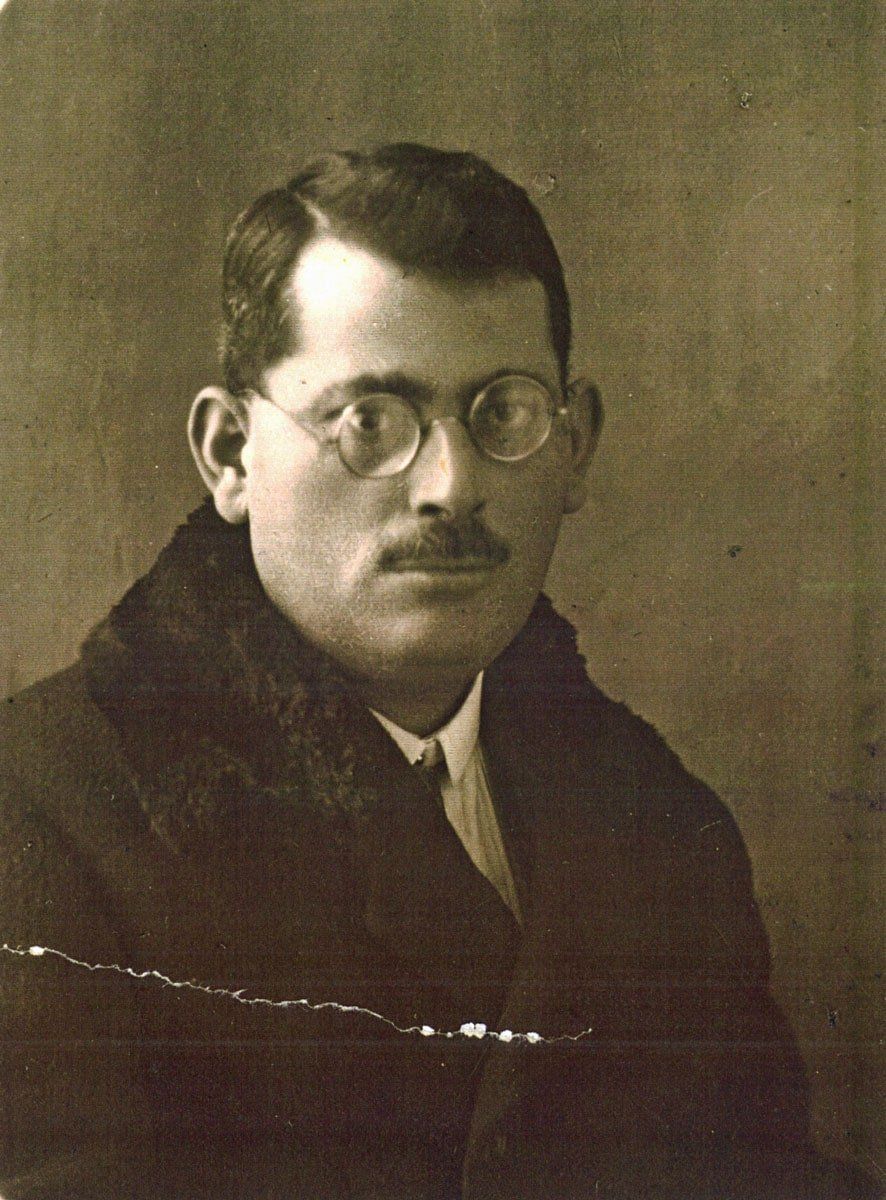So Many Lost
1944–1945
In those first months after the Nazis were defeated, nothing was in order. Either you were alive, or you had been killed. We didn’t spend a lot of time finding out what had happened to other people. We needed our strength to get through each day. When we couldn’t find certain relatives, we had no way to figure out what had happened to them, but assumed they were dead. I’m sorry to say that of all of my aunts and uncles and cousins who were in Europe during the Holocaust, only a few survived. Two of my mom’s brothers, Béla and József, were safe because they had left for the United States before the war.
Aunt Lina, my dad’s sister, who had welcomed me into her home in Budapest, was gone and so were her two young sons, Péter and Laci. I don’t know the details, but I’m sure the Nazis killed them. Aunt Lina’s husband died before the war, and there was no one to protect them. The sad reality, of course, is that her husband would not have been able to save them anyway, because the Nazis would have taken him away with the other men. The Nazis also killed Uncle Sándor, my mom’s brother who was a teacher, and also his wife and two children. They were such a nice family, and we always had fun when they came to visit. Uncle Miksza, my dad’s brother, and his six children—the cousins I played during summer visits—were also gone. Even though I was told that Uncle Miksza’s wife survived the war, I never saw her after we were taken to the ghetto. Another dear person lost was my Aunt Bözsi, my mom’s youngest sister who I had helped with her newborn baby before all of the killing started. Aunt Bözsi and her husband and their little girl were all murdered by the Nazis.
That’s what the Nazis did; they killed people. Perhaps we could say that many people disappeared, but if we use that word, it would make it seem like they might come back. That’s not what happened with the Holocaust. People were killed, so, of course, they never came back. They were dear, normal people and families—who worked, took care of each other, helped each other and loved each other. And they were all gone—caring people who were lost forever, taken away by the inhumane cruelty of the Nazis. The biggest loss for me, of course, was my loving mom, my wonderful grandmother, my loyal sister, Erzsébet, and my sweet baby brother, Gábor. Although losing them is something that has stayed with me since July 1, 1944—the day we were separated at the gates of Auschwitz—memories of each of them have remained a part of me.
As with my family, and so many other Jewish families across Europe, the Nazis killed most of Ernő’s family. Of his six sisters, all but one had children when the Nazis came, so they went to the gas chamber when they arrived at Auschwitz. And, of course, the cruel Nazis murdered all of their children. Ernő’s one surviving sister was married but not a mother, so she wasn’t sent to the gas chamber like the others. The youngest child in Ernő’s family, Sándor, survived months of forced labor during the war. After Ernő and I got married, Sándor came to live with us because he was all alone; with his parents and most of his sisters no longer alive, he had no other place to stay. Sándor eventually went to college, married and began his own life working and raising two sons.
Throughout the Holocaust, the Nazis killed millions of innocent people who were just trying to lead their lives—mother, fathers, grandmothers, grandfathers, sons, daughters, sisters, brothers, and even tiny babies. Most of those murdered were Jewish, but the Nazis targeted and killed other groups, too. It was all completely senseless. It’s almost impossible to fathom the Nazis’ cruelty and the aftermath of their destruction, but those of us who survived can speak with certainty about what we witnessed and the depth of our pain over losing our dear ones. We can only hope that the world never forgets the lessons of the Holocaust.





